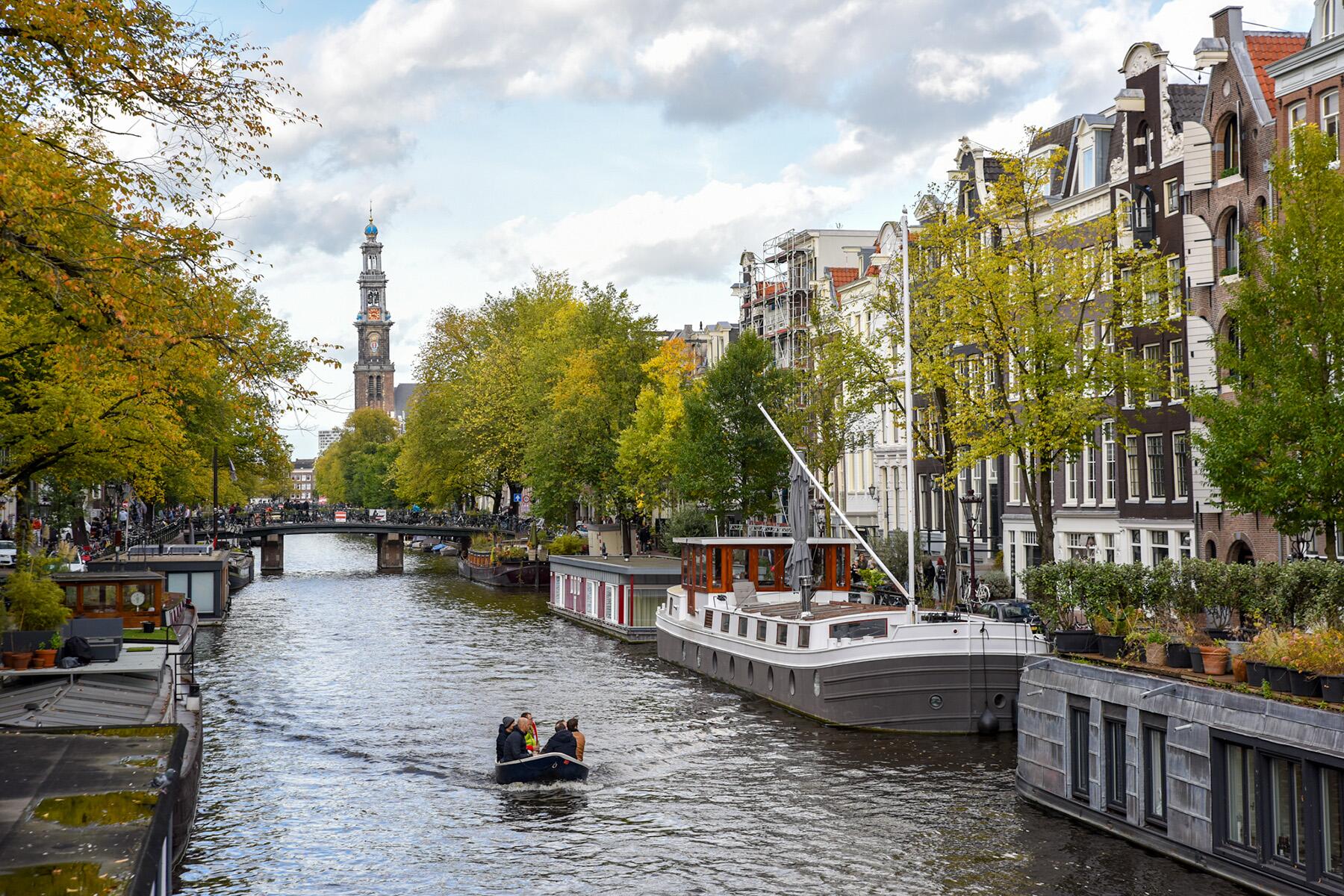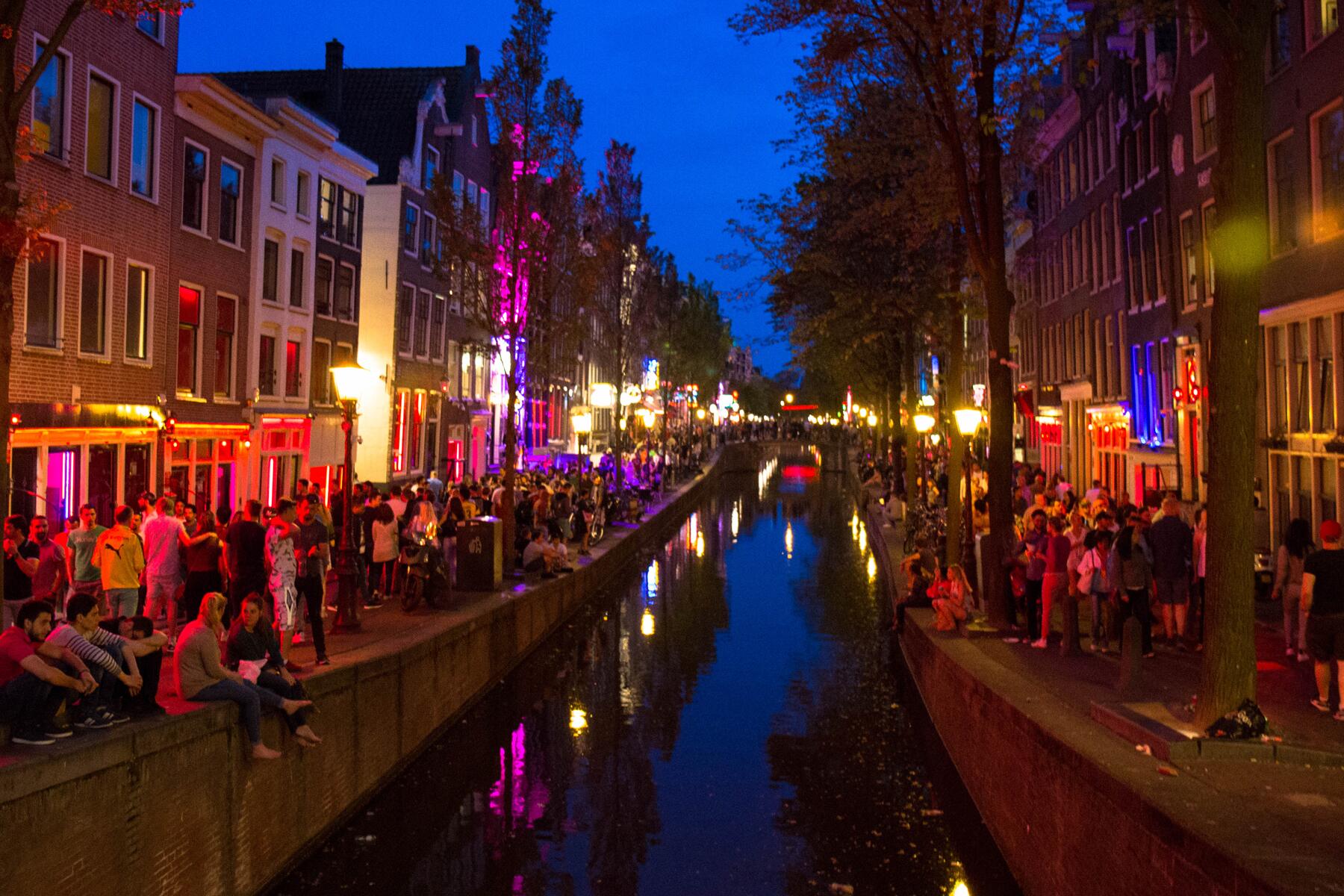Every industry across the economy has been affected by the pandemic.
On Felicia Anna’s first day selling sex in Amsterdam’s Red Light District, she didn’t sell any sex at all. “It started out with me opening the curtain and seeing so many people I freaked out and went home,” she says.
Anna, who is from Romania, came to the Netherlands 10 years ago to work as a sex worker, renting a window in Amsterdam’s Red Light District (she uses a pseudonym to keep her identity private). After three days of paying rent while feeling too nervous to see any clients, she drew the line.
“I was like, ‘OK I’m going to do this or I’m going to stop,’” she recounts. “And then slowly, slowly, I got used to it.”
Now, though, there’s no crowd outside the windows, and the red lights that illuminate the district’s lingerie-clad sex workers are switched off. For years, Anna’s late nights in the district meant bachelor parties and curious tourists, stoned partiers and a few locals. Now she says the usual ruckus has given way to strange quiet; with social distancing in place, no one gets close enough to strangers for a handshake, let alone fondling. Amsterdam sex workers, like many people around the world, are unemployed.
There are good reasons to press pause on the industry. In a recent piece by Lazaro Gamio for The New York Times, an infographic showed the relative coronavirus risks of a long list of professions. The upper right-hand corner—the scariest, most dangerous part of the graph to find your job-title listed—included dentists and paramedics. But in a graph that charts, at least in part, the odds of swapping bodily fluids while on the clock, it’s hard to compete with sex work.
Recommended Fodor’s Video
“It’s very, very difficult because you should stay one and a half meters away from people,” says Anna. “In our industry, that’s very difficult. You can put on a mask, or say to your customers to disinfect their hands or be careful a little bit more, but it’s still very difficult.”
Sex work is legal in the Netherlands, which means that out-of-work sex workers aren’t weathering coronavirus entirely on their own. “The Netherlands offers assistance for self-employed people, and that includes sex workers,” Anna explains. But she says the checks don’t cover the cost of living in an expensive city like Amsterdam.
You can put on a mask, or say to your customers to disinfect their hands or be careful a little bit more, but it’s still very difficult.”
“A lot of workers, they still do work today because they cannot survive on the money they get [from the government],” says Anna. “Of course, [the work] is not in the windows because the windows are closed down.”
Instead, she says, some sex workers she knows are meeting customers at home or in hotels, risking both coronavirus and violence.
But while the pandemic has brought hard times to Amsterdam sex workers, they enjoy relative safety and comfort when compared to many of the world’s sex workers.
In the United States, the Small Business Administration coronavirus loans exclude anyone whose work is of a “prurient sexual nature,” ensuring that even those running legal brothels, strip clubs, and sex shops are shut out from the aid package. In Germany, brothels closed due to coronavirus have left many foreign-national sex workers homeless and stranded.
“Even in countries where sex work exists in a legal gray area or is legalized to some degree, many sex workers are finding that the system of benefits extended to workers in the formal sector does not include them,” says Laurel Sprague, a spokesperson for UNAIDS, an organization that leads UN efforts to fight HIV and AIDS. In an April 8 statement about the impact of COVID-19 on sex workers, the organization noted that the pandemic is exposing existing vulnerabilities, including the precarious nature of sex work.
A recent scene in South Los Angeles illustrated the dangers. Laura Newberry reported for the Los Angeles Times that despite stay-at-home orders, street prostitution was bustling in mid-April. Customers arrived in cars wearing masks and gloves, but workers were unprotected.
Legality is a chasm between Amsterdam sex work and the L.A. street trade, but Anna sees another difference, too. Sex in Amsterdam, she says, is part of the global tourism industry that’s been devastated by coronavirus. For the 10 years she’s worked a Red Light District window, most of her customers have been international travelers.
Customers arrived in cars wearing masks and gloves, but workers were unprotected.
When asked what she liked most about sex work, Anna’s response could have come from any travel professional. “I get the chance to meet people from all around the world,” she says. “It’s really nice to meet so many different people, and learn about so many different cultures.” And to Anna, the Red Light District is a part of the city’s essential identity, as much as a canal-boat cruise or a trip to the Rijksmuseum.
“The Red Light District is a tourism attraction,” she says. Among the oldest parts of the city, the area has been a hub for sex work since at least the 15th century. But not everyone in Amsterdam likes the idea that prostitution is a tourist draw. In the last decade, a series of laws have attempted to reshape sex work there.
“We do not want to be famous for sex and drugs,” said Amsterdam mayor Femke Halsema to Time magazine last year. “We want to be famous for our cultural heritage.”
Incensed by laws she sees as an attempt to shut down the industry, Anna started a blog and began leading tours of the Red Light District last year. “I really like to do the tours,” Anna explains. “I can make sure people get the right information about the district.” In late 2019, Anna decided to take a break from seeing customers to focus on tours and advocacy. But in April, a new law went into effect that banned tours of the Red Light District.
Now, with tours banned and sex work on hold, she’s not sure what the future will bring. When the novel coronavirus hit, Anna went into overdrive, working to connect other sex workers with help from NGOs and the government.
That impulse to organize is something Anna has in common with sex workers around the world. In Detroit, a mutual aid fund is raising money for sex workers and their families. The Sex Workers Outreach Project coordinates mutual aid efforts in L.A. and New York; Las Vegas sex workers also have a mutual aid fund. For anyone hoping to support Amsterdam sex workers during coronavirus, Anna suggests donating to the Dutch Emergency Fund.
Anna doesn’t know if she’ll return to sex work when the coronavirus threat has passed. Either way, she says 10 years of sex work have changed her, and there’s no going back to who she was before she stepped into the window.
“Years ago, I was this very shy person,” she says. “I didn’t dare speak up for myself.”
Anna says that for her, and for many in the Red Light District, sex work has taught grit and resilience.
“Now I’m a very different person,” she says. “That goes for most of my colleagues, not just for me—we change into a very strong person.”



